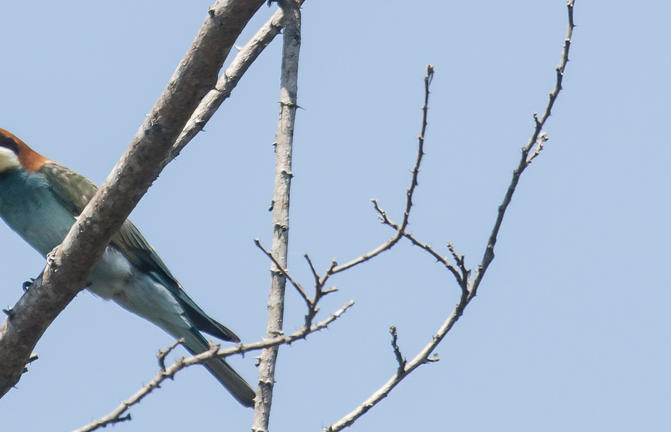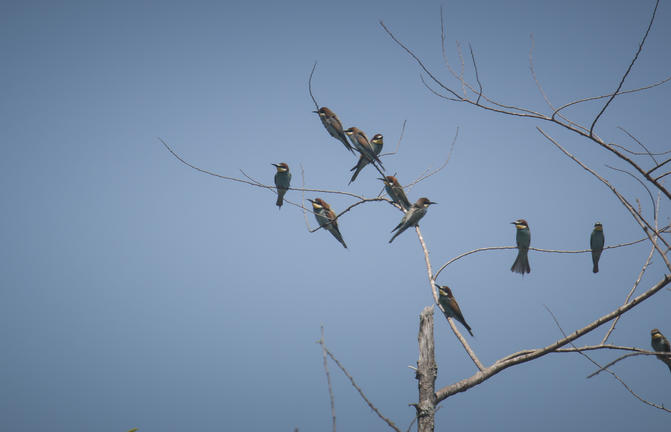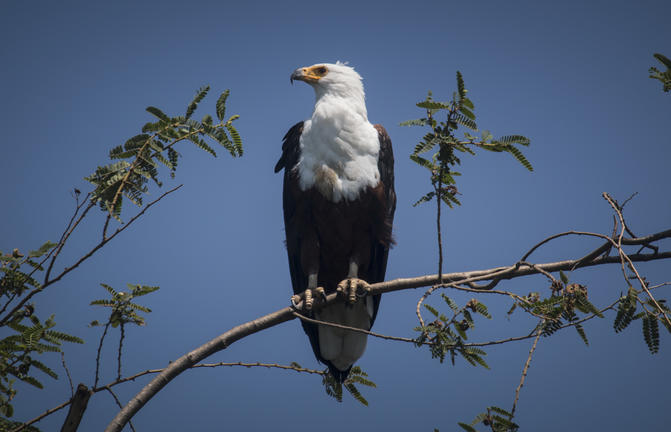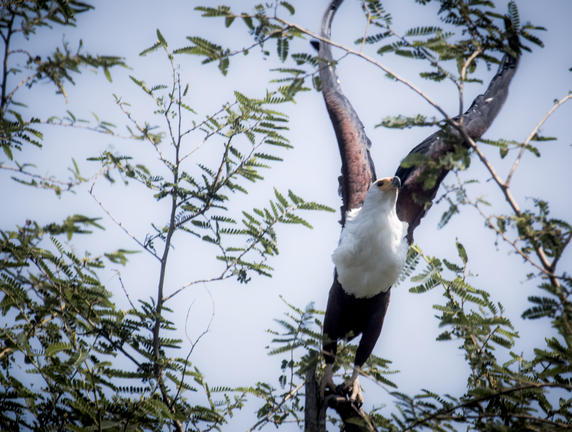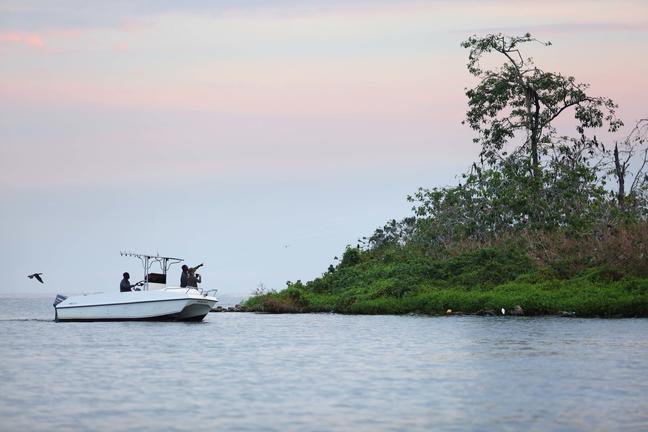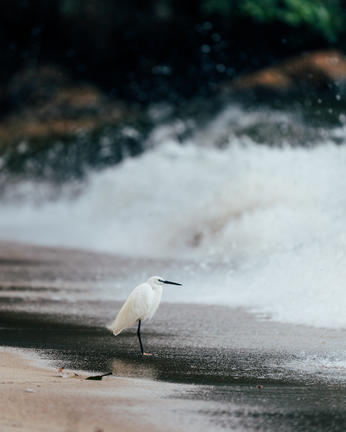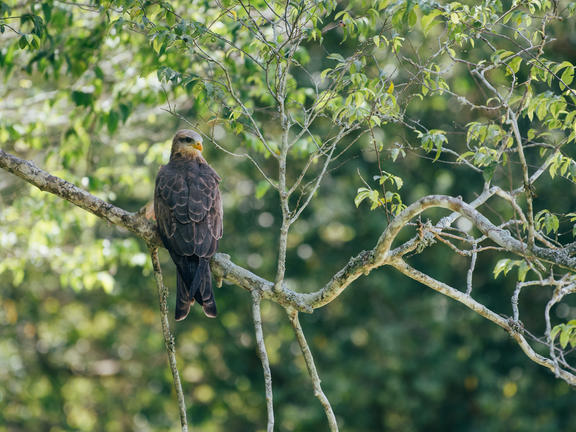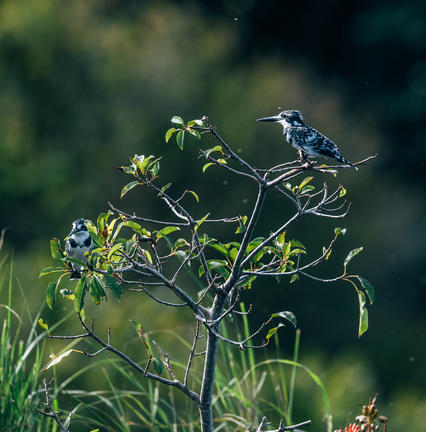Rubondo Island Camp | Lake Victoria, Tanzania
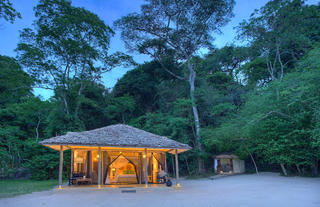
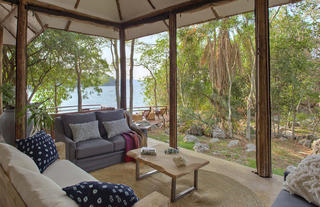
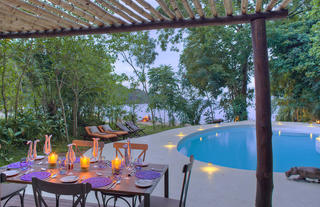
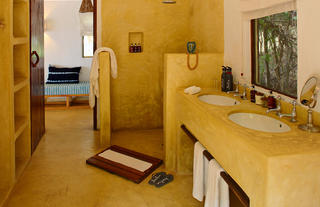
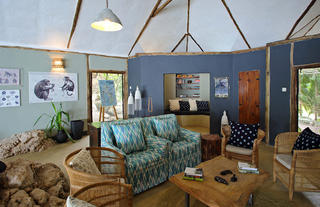
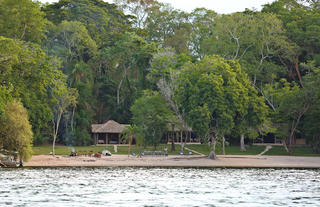
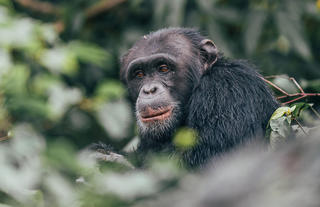
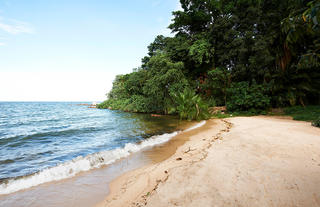
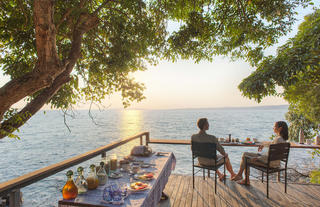
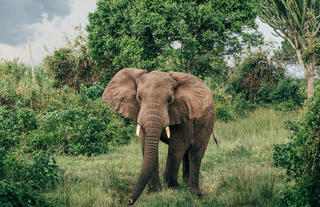
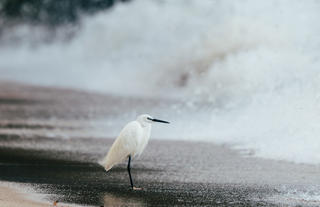
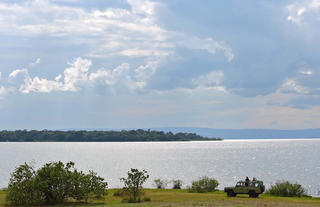
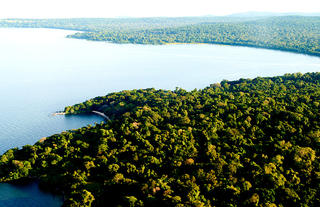
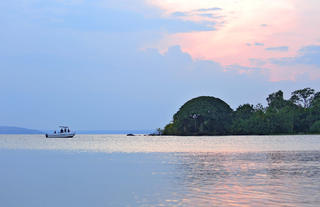
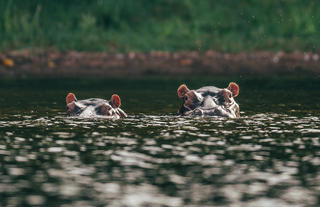

















Rubondo Island Camp is the only camp on the 250km² Rubondo Island – one of the biggest islands in Tanzania's vast Lake Victoria. The lodge sits on the sandy lakeshore, backed by dense forest. With some interesting wildlife on the island, including a troop of chimpanzees, and very good birding, it aims to be halfway between a safari camp and a beach retreat.
Rubondo Island Camp is certainly a unique addition to the typical northern Tanzania circuit. The beach where the camp is located is small but very picturesque, with wildlife aplenty. Towering fig trees are filled with black kites, water monitor lizards scrounge in the bushes, white egrets and open-billed storks wade cautiously at the lake’s edge, and otters can often be seen playing in the reeds. The frequent sound of fish eagles screeching above gives the whole place a primeval feel.
About 60m back from the shore, Rubondo Camp's eight rooms include a family room with two bedrooms sharing a bathroom, and a honeymoon suite with a double outdoor shower. The rooms sit fairly close together, all facing towards the lake and with lovely views, both from the small veranda and from inside through an entirely mesh front wall. Reed-covered roofs and stone walls finished externally in a sandy colour help them to blend into their surroundings. Inside, the rooms are designed in a natural and minimalist style. While there's obviously been a lot of thought put into this, and an attempt made at a clean and contemporary feel, we felt they were slightly lacking in character and a little formulaic, which is a shame given the history and personality of the island.
A double bed forms the centrepiece of the room, with the bedframe and bedside tables crafted from the same stone as the floor, so they appear as one continuous feature.
The en-suite bathroom behind the bedroom features the same continuous stone walls and comes with a large walk-in shower, twin basins, flush toilet and plenty of space for clothes. Again, they're simple and stylish, but simple items, such as pegs to hang towels on, would be a welcome addition.
Outside, the small veranda, complete with a table and two chairs, is a peaceful place to sit with a book, or perhaps a pair of binoculars. We moved one of our veranda chairs down to the beach to get a bit closer to the shore and get the feel of sand under our feet, but it would be good if there was some form of seating already on the beach.
Between the rooms and the main area there's a very inviting swimming pool around which deckchairs are set out each day.
But it's Rubondo’s main areas, built on a rocky headland, that really stood out for us. Very spacious and set across a number of levels, with sweeping views of the lake on three sides, the lounge, bar and dining areas are peaceful places to take in your surroundings. Large chunks of natural stone poke through the floor, light features made from driftwood, and large potted plants help it to feel like an extension to the natural environment.
The whole structure is completely open, with mosquito-net gauze that can be zipped down in the evenings to moderate the breeze and keep out the insects. Comfortable blue sofas and armchairs sit in small groups on wicker mats, with interesting books laid out on the coffee tables. A small alcove houses ‘The Nest’, with a book swap and games shelf, and information on the island and its inhabitants, particularly the chimpanzees.
Guests usually eat communally, but for those who want a little more privacy, they can also accommodate separate tables. We particularly enjoyed the lower deck on the east side, which is completely open and faces the sunrise, perfect for breakfast, and we also ate at candlelit tables set out on the shore.
Activities at Rubondo Island Camp are far less structured than at most normal safari camps. The atmosphere is about relaxing and enjoying yourself, and simply spending an afternoon in camp, with a pair of binoculars, is a brilliant activity in itself. That said, we did find ourselves occupied all day, every day!
Guided walks around the island focus on the tropical forests and vegetation, whose fantastic birdlife (there are said to be over 300 species on the island) – given the density of the forest – is often heard rather than seen. The two guides in camp were exceptional and passionate birders, able to identify most species from their call alone.
Vehicle safaris around the island can take you a little further from camp. Sightings of the usually elusive sitatunga and bushbuck are common, while the island’s other mammals, specifically elephant, giraffe, civet, genet and suni antelope, tend to prove a little trickier to find.
The chimpanzees on Rubondo Island were introduced in the 1960s. Rescued from zoos and circuses around the world, they have thrived and now more than 40 individuals roam across the island. Visitors can participate in a Chimpanzee Habituation Experience, as against a chimp trek, and sometimes a boat is used to get to a point where you can trek inland. Sightings are improving, although despite many hours of waiting and listening for a characteristic hoot during our recent three-night stay, they couldn’t be located in the thick forest.
The birdlife on some of the smaller islands around Rubondo is exceptional, and heading out on a boat trip from camp is a great way to explore. Bird Island is home to hundreds of cormorants, African darters, egrets, and big flocks of pied kingfishers. Marabou storks lurk in the tall trees, and numerous fish eagles (thought to be some of the highest concentrations in Africa) are spoilt for prey with a lake full of fish, and nests full of chicks. While hippo and crocodiles are only occasionally sighted from the shore of the lodge, they're easy to see from the boat.
For keen fishermen, the 100kg-plus Nile perch that patrol the waters here are a reason to visit, and even the novice angler has a good chance of catching a decent-size fish. For more serious fishermen, you can privately charter the six-passenger camp boat for US$210 for a half day; while the four-passenger boat costs US$250 for a half day.
Rubondo is a wild, remote, off the beaten track and a truly lovely camp to relax and spend time just enjoying nature, with a flexible schedule. You can explore by boat and on foot, as well as by vehicle, and we think it would be a perfect last stop after a busy safari – or possibly a more nature-oriented alternative to Zanzibar.
Rates are full board accommodation, all house drinks (except champagne), game drives, boating safaris, swamp excursions, nature walks, chimpanzee experience (permit must be added $90pp), fishing & fishing permits, transfers to/from Rubondo airstrip and limited laundry service, TDL
Min age is 5 years,
Communications
There is WiFi in the main areas, although it's not always that reliable. There is good cellphone reception throughout the lodge.
- Information
- Cabanas
- Facilities
- Activities and Services
Your Stay
3 Nights
Fully Inclusive - Bed, All Meals, Fees and Activities
Your Rooms
1x Twin Room
Fast Facts
Camp
Spoken Languages: English, Swahili
No. Rooms: 8
Special Interests: Adventure, Birding, Fishing, Flora, Hiking, Leisure, Nature, Relaxation, Star Gazing, Watersports, Wildlife
Rubondo Island Camp features eight large waterfront chalets, surrounded by rolling green lawns that open onto the beachy shores of Lake Victoria. Guests can enjoy the sounds of the forest and the view of the world’s second largest lake while relaxing on the verandah of their chalets. Each chalet has a king-sized bed, enclosed by mosquito nets, and an en-suite bathroom including a flush toilet and running hot water. Shampoo, soap, conditioner, shower and body lotion and flip-flops for the sandy shores are provided for all guests.
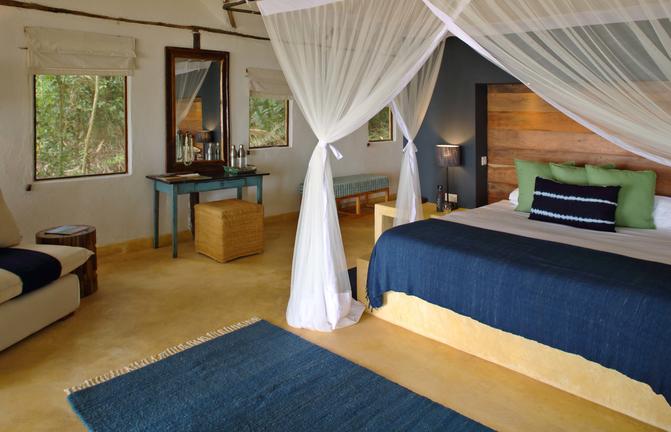
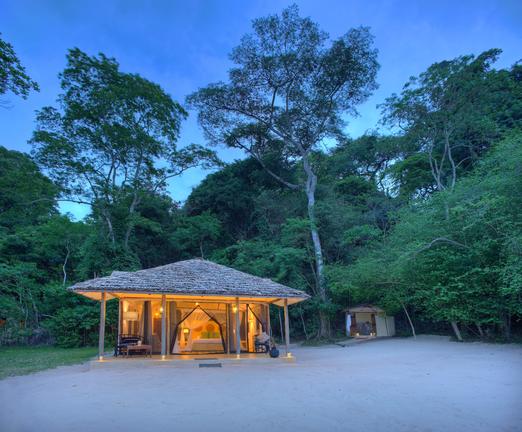
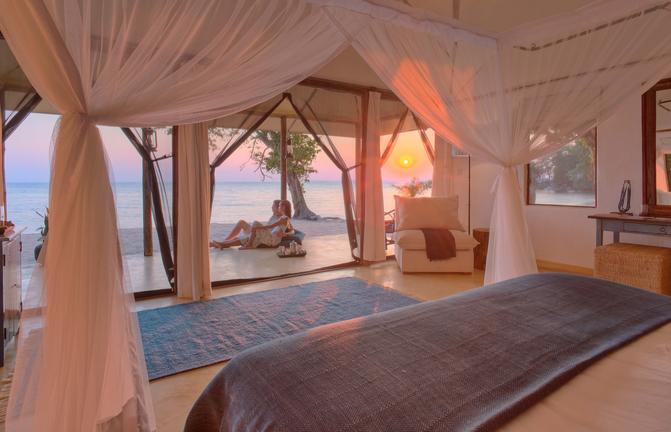
The family cottage at Rubondo Island Camp features a king-sized bed, with doubles or singles available on request for the 2nd room. The chalet has an en-suite bathroom including a flush toilet and hot, running water, and is within easy reach of the main camp area, and pool. The verandah offers comfy seating and superb views of the surrounding forest and Lake Victoria.
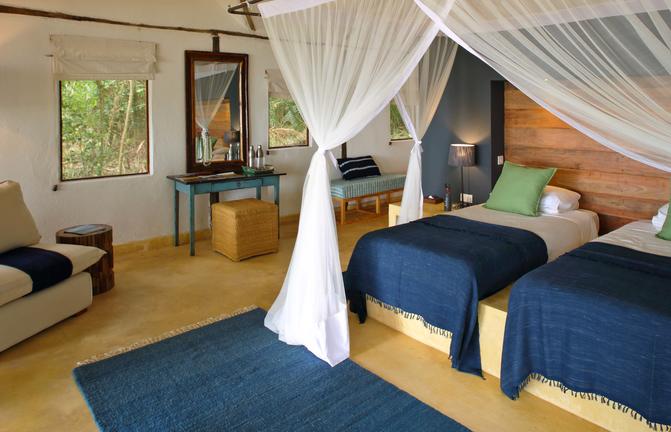
Property Facilities
Eco Friendly, Internet Access (Complimentary), Pool, Spa, Vegetarian
Room Facilities
Dressing Gowns, Electrical Outlets, Laundry Service (Complimentary), Mosquito Nets, Pure Cotton Linen, Shower, Tea / Coffee, Verandah
Available Services
24-hour Security, Airport Shuttle (Available), Credit Card Facilities, Laundry Service (Complimentary), Room Service
Activities on Site
Bird Watching, Boating, Catch-and-release Fishing, Fine Dining, Fishing, Game Drives, Game Viewing, Game Walks, Garden Tours, Massages, Sailing, Walks (Guided)
Activities Nearby
Animal Encounters, Bird Watching, Boat Cruises, Boating, Catch-and-release Fishing, Cultural Tours, Fishing, Game Drives, Game Viewing, Game Walks, Garden Tours, Hiking, Sea Kayaking, Walks (Guided)
Asilia's expert wilderness guides take guests out on daily game drives by boat or in open vehicles. These excursions take in the exceptional scenery, diverse vegetation, and prolific bird and insect life.
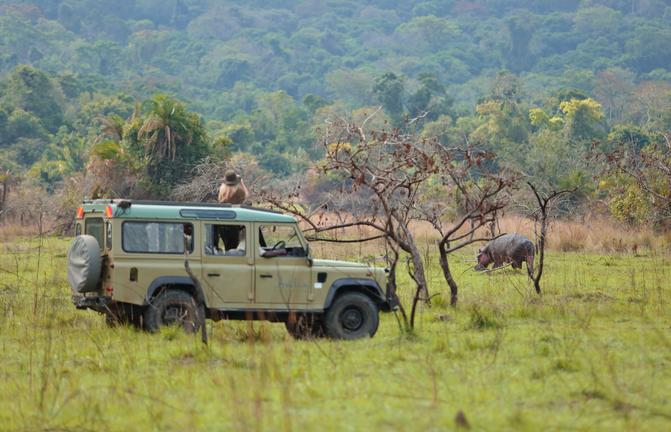
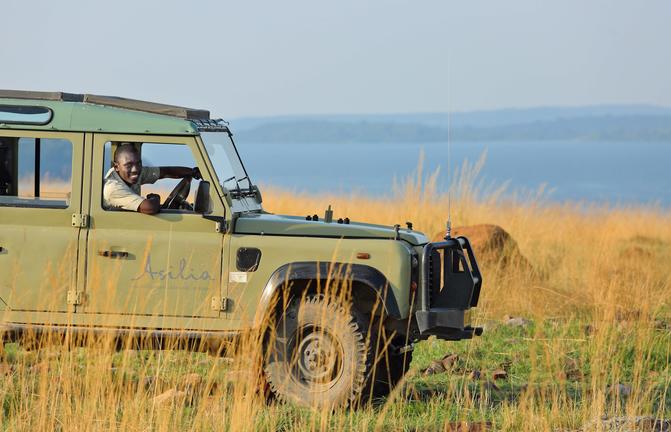
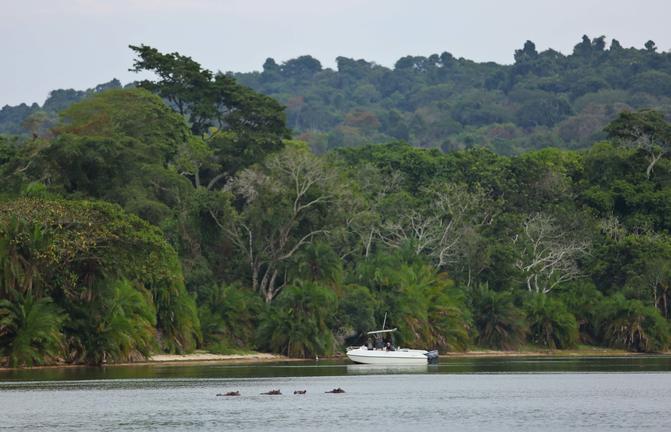
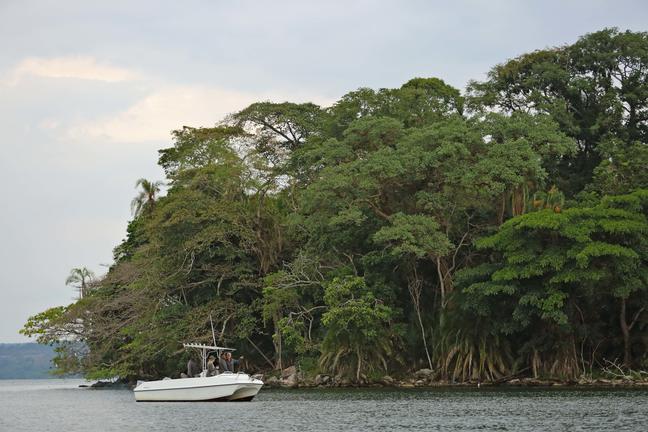
Guided walks through the lush equatorial forest can stretch from a one-hour stroll to full-day or even multi-day hikes, incorporating a stay in the exclusive tree house or a fly camp on the beach.
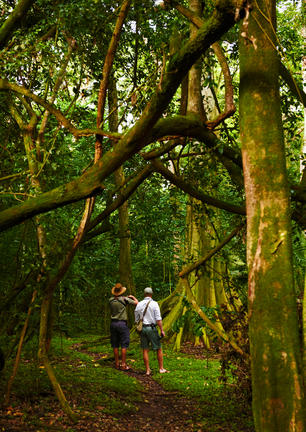
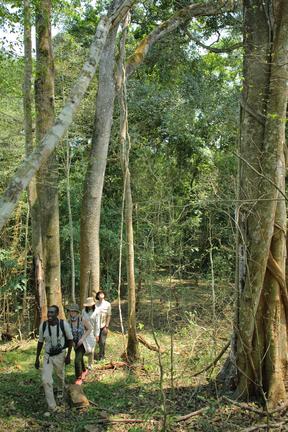
More challenging and lengthier hikes are available for the keen adventurers.
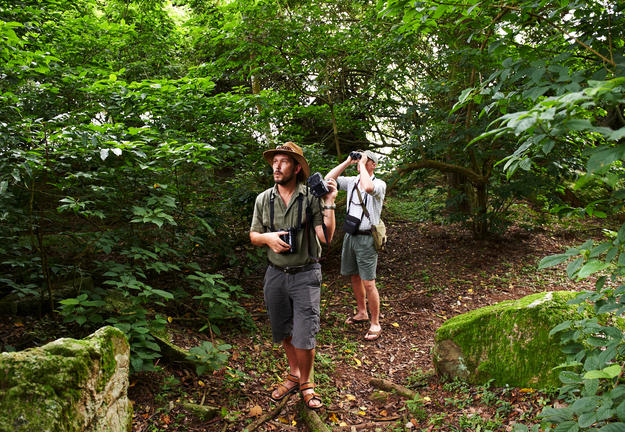
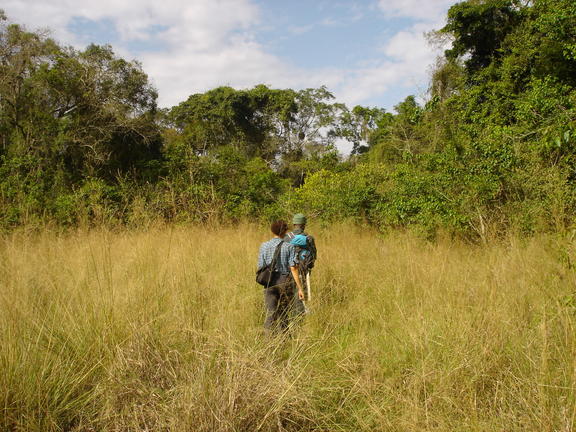
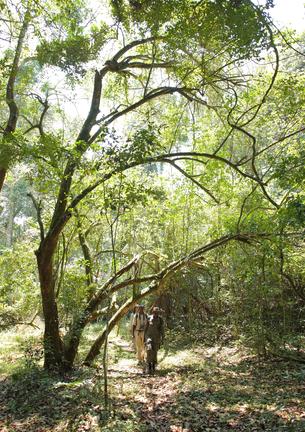
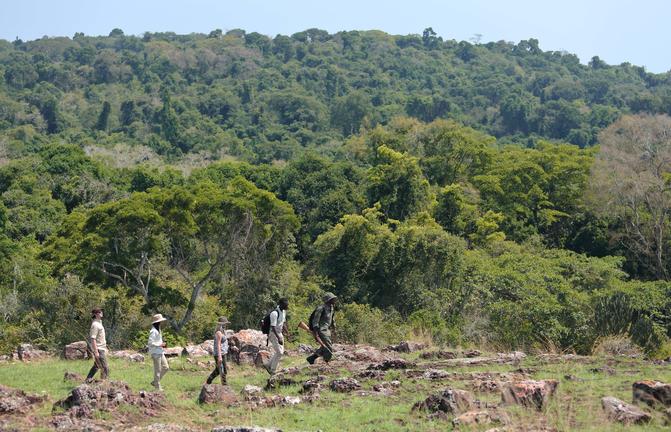
Discover the hidden corners of the island and spot the varied aquatic life from the boat and try to catch a glimpse of the hippos, otters and monitor lizards in the water.
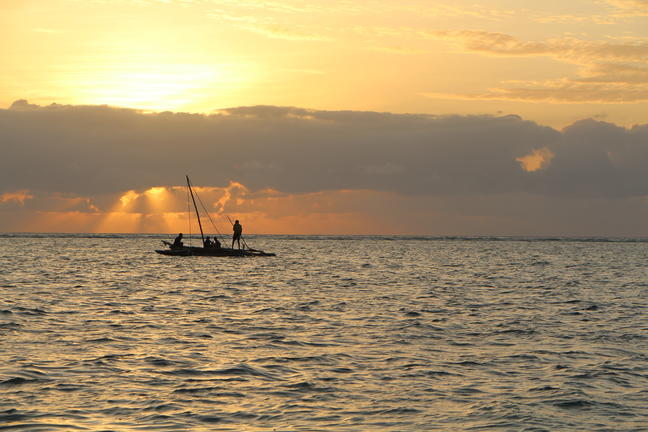
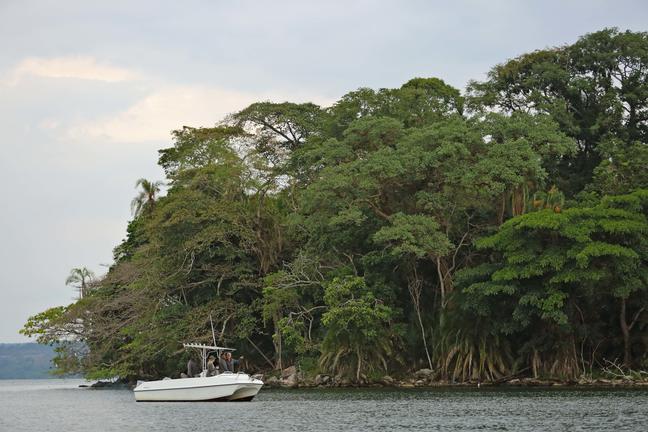
Rubondo Island is a 25 000 hectare exclusive utopia in the south-western corner of Lake Victoria. Half Jurassic Park, half rainforest, Rubondo Island is the most unexpected adventure destination in Africa. Families of 4 with children of 5 years and over can stay in a charming hand-built cottage tucked away amongst leafy trees. Forest walks, game and bird watching, trekking through wild chimp territory and fishing for huge Nile Perch is the order of every day in this unique wonderland.
Head out through the foliage with your trekkers and guide to seek out the island's resident wild chimpanzees and learn more about how they came to be on the island and the ongoing habituation process that is currently taking place. Although the chimps are slowly becoming adjusted to the presence of humans, sightings cannot be guaranteed.
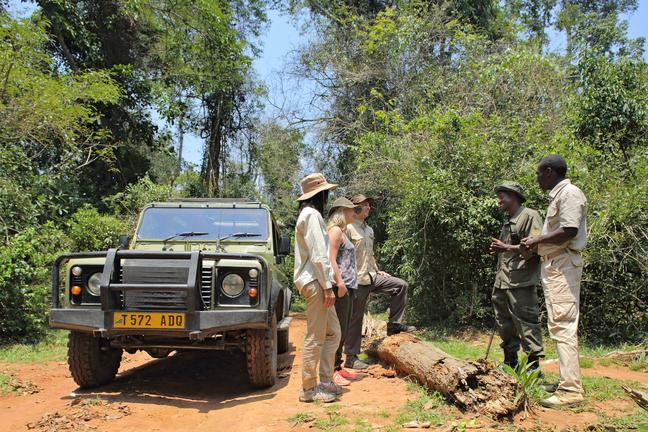
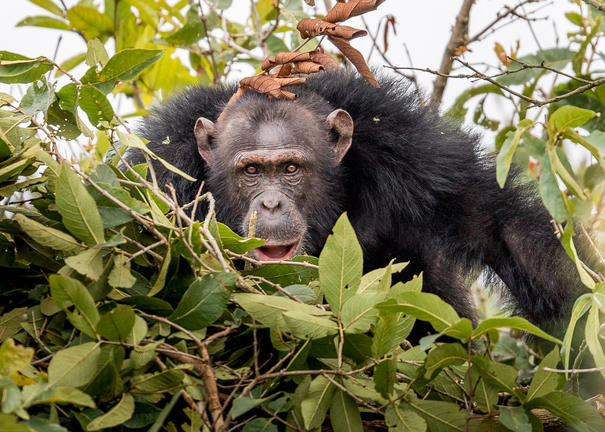

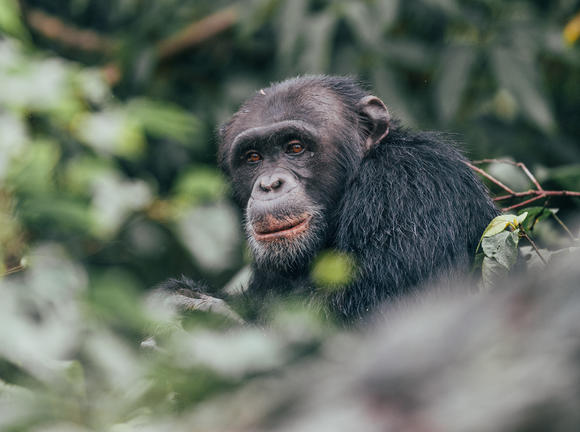
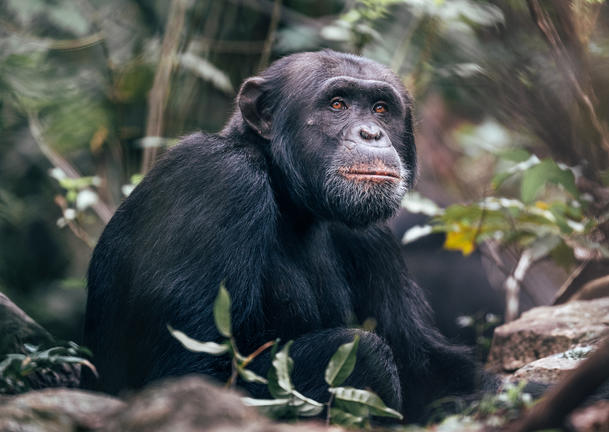
Rubondo Island offers some of the best fishing in East Africa and is renowned worldwide among anglers for the standard of the fishing guides and the opportunity to catch one of Africa’s biggest and most sought-after freshwater species – the Nile perch. Catch-and-release fishing can be done from the camp, by boat, on the beach, or from the rocky shore.
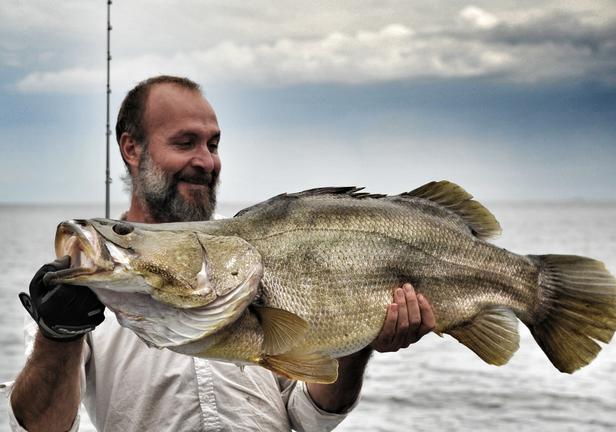
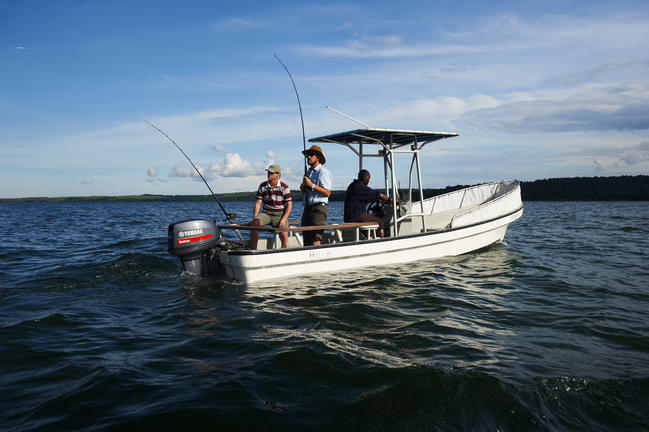
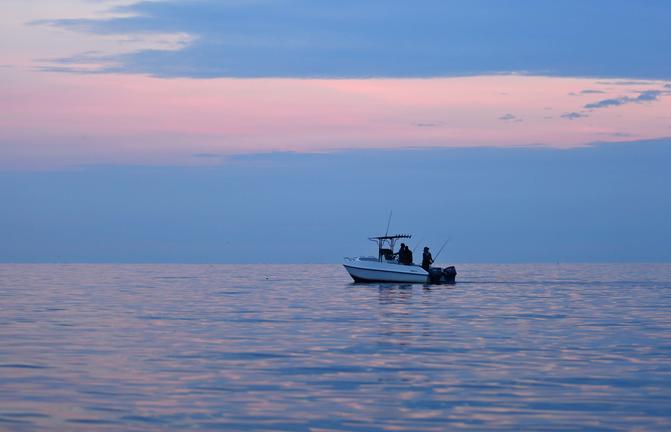
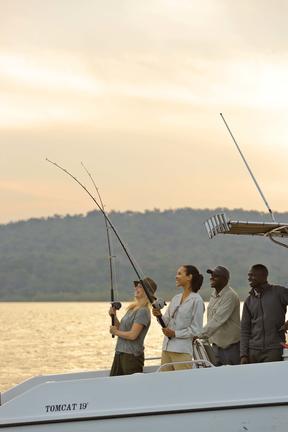
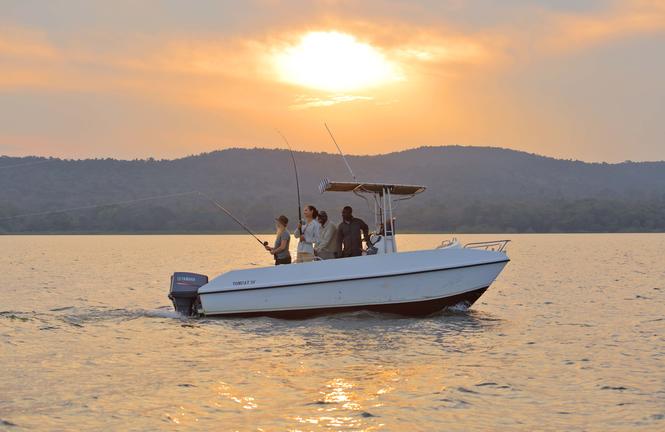
With over 300 endemic and migratory bird species, Rubondo Island is an ornithologist’s dream. December to March is best for spotting migratory birds, but with the varied habitat of the island, there is something new to record all year round.

